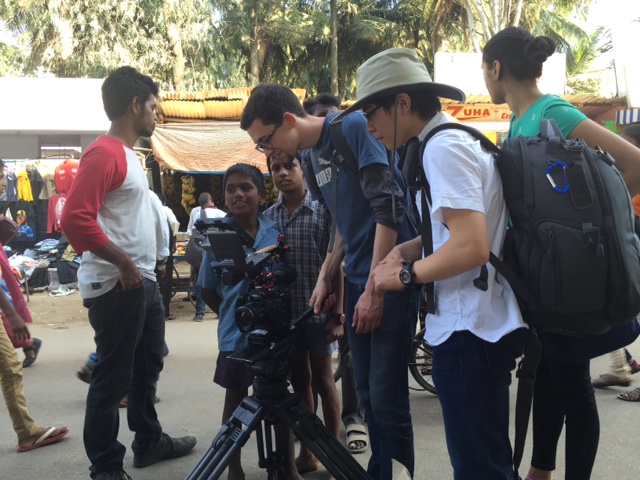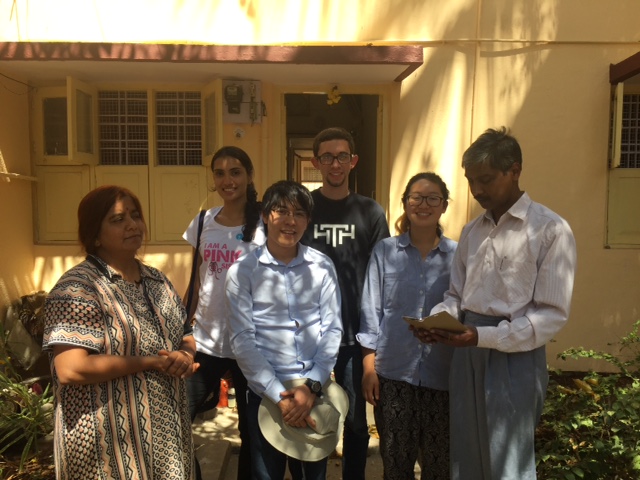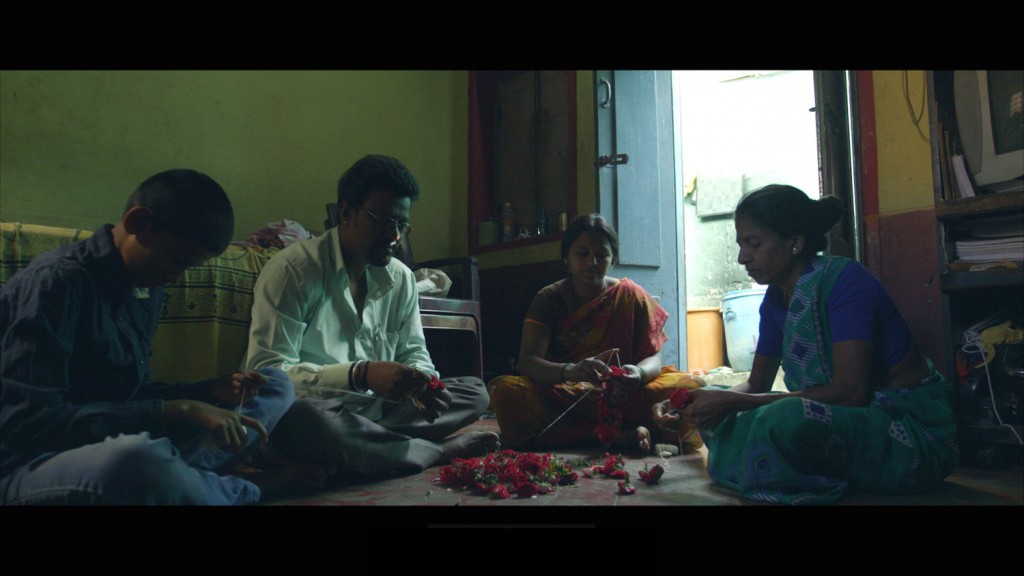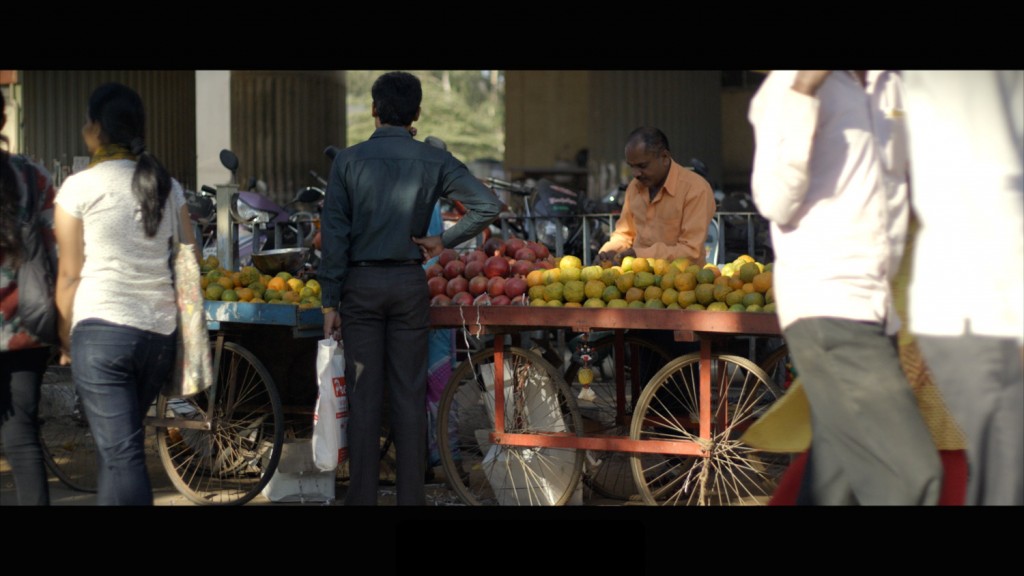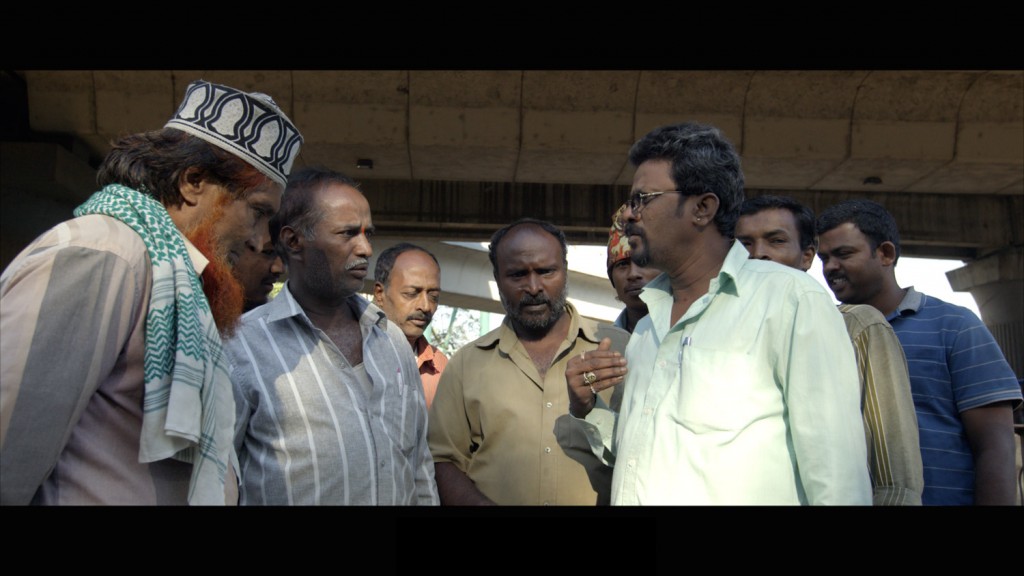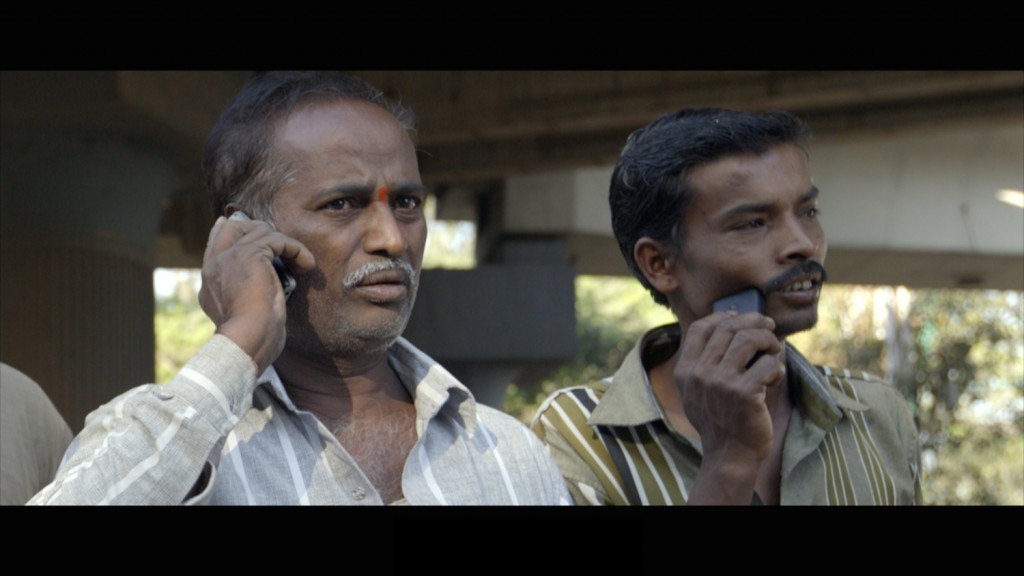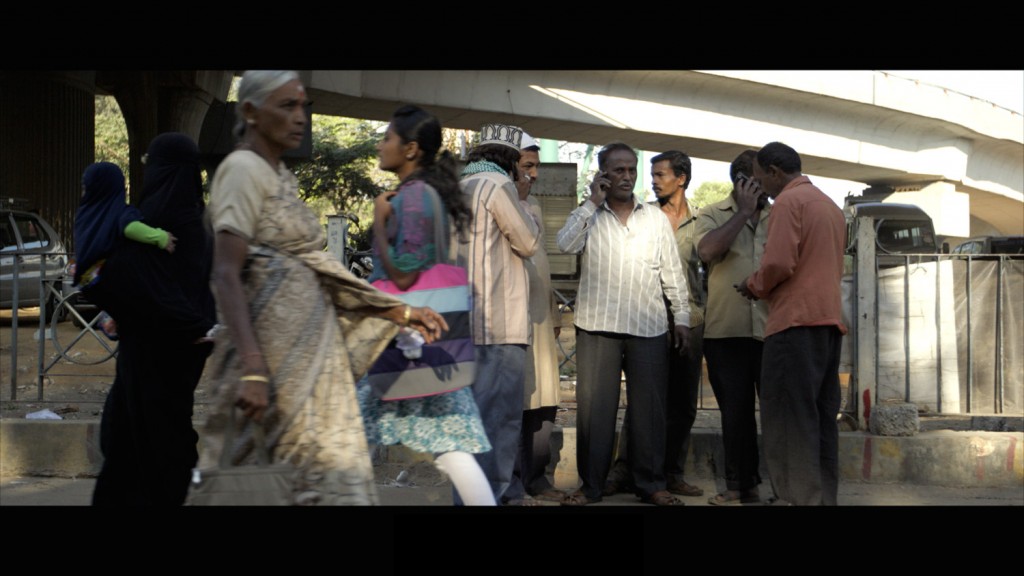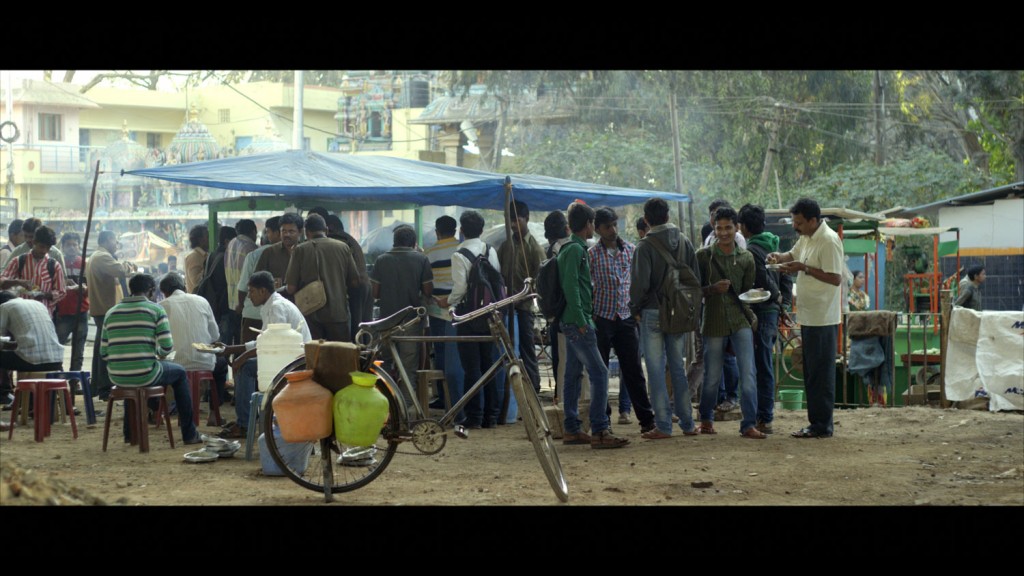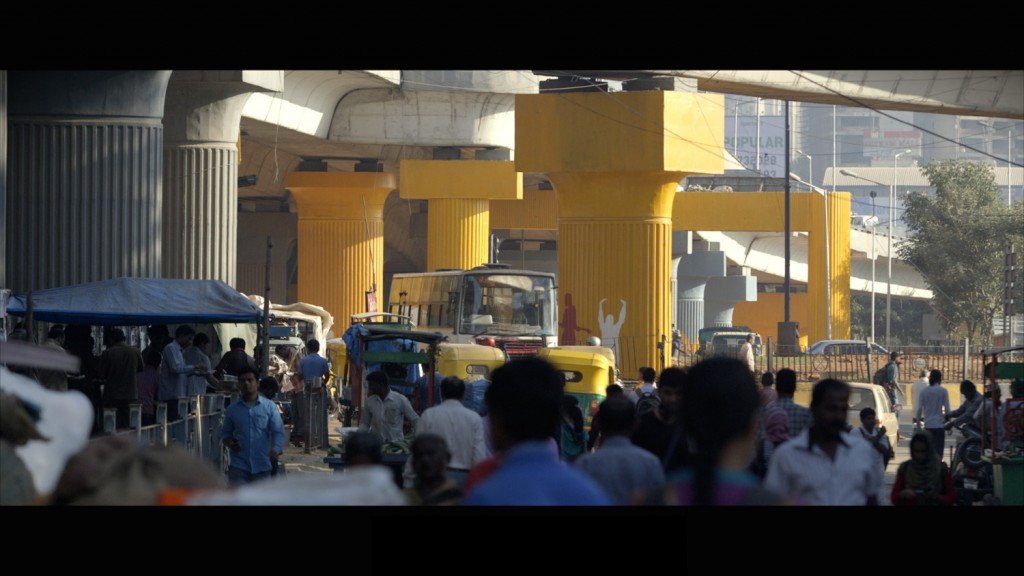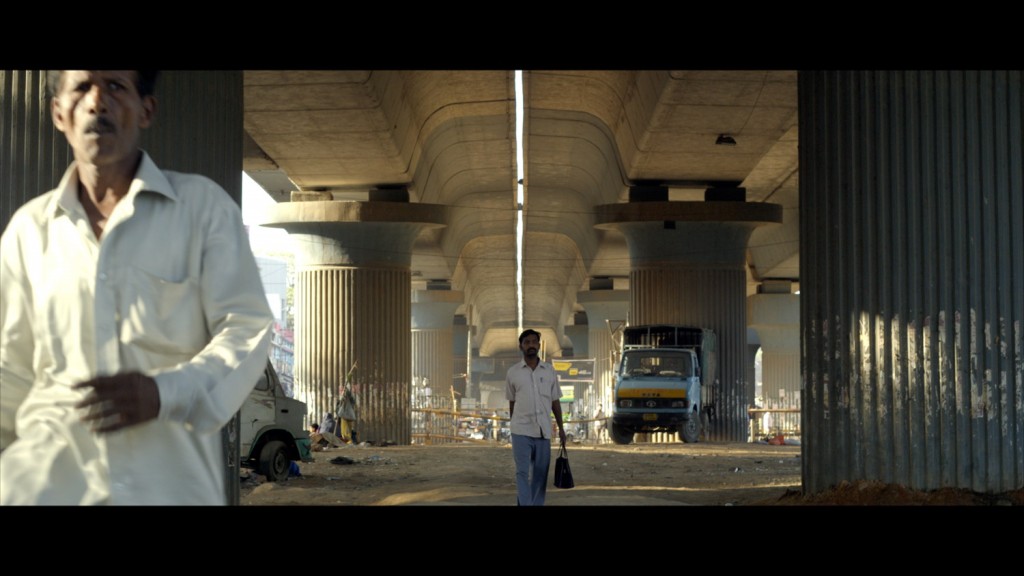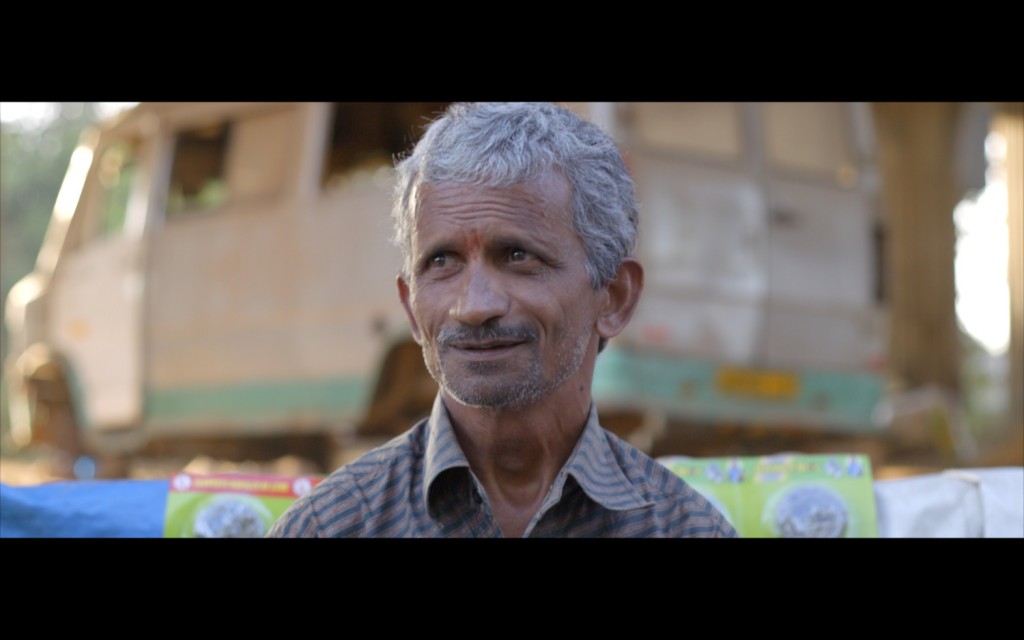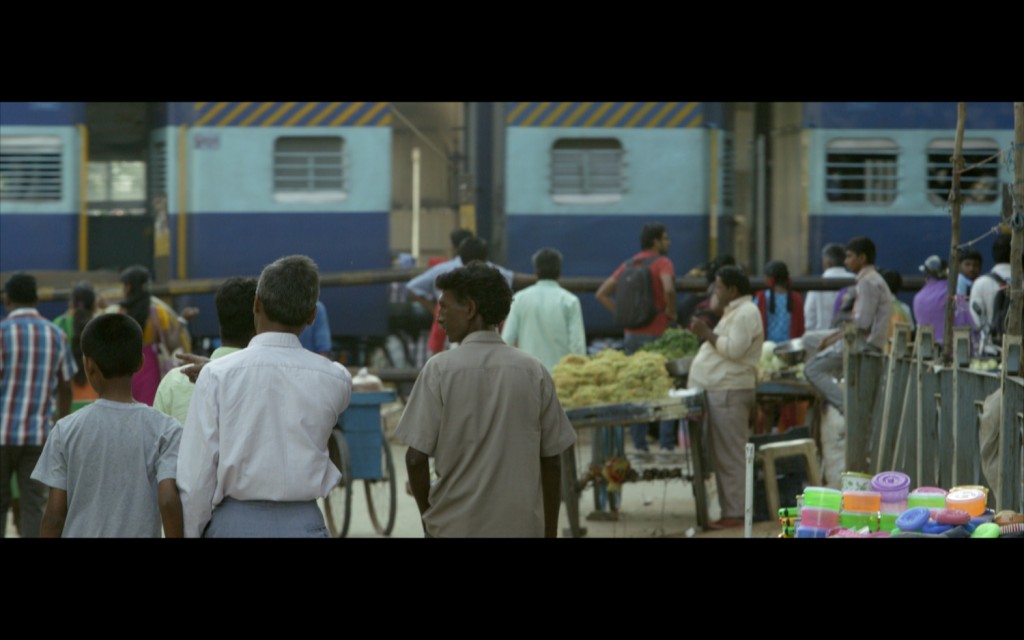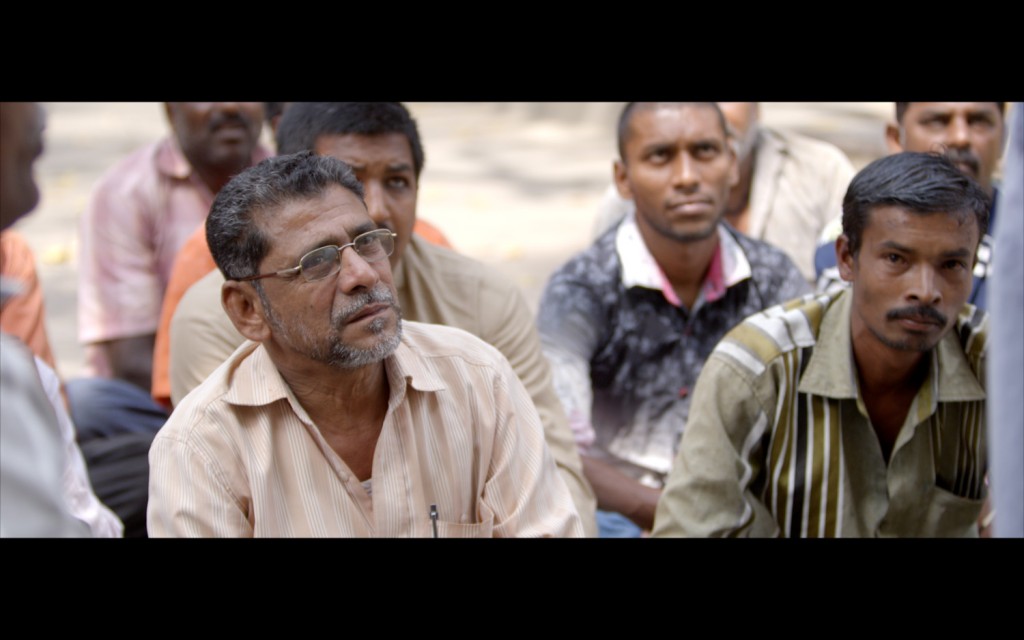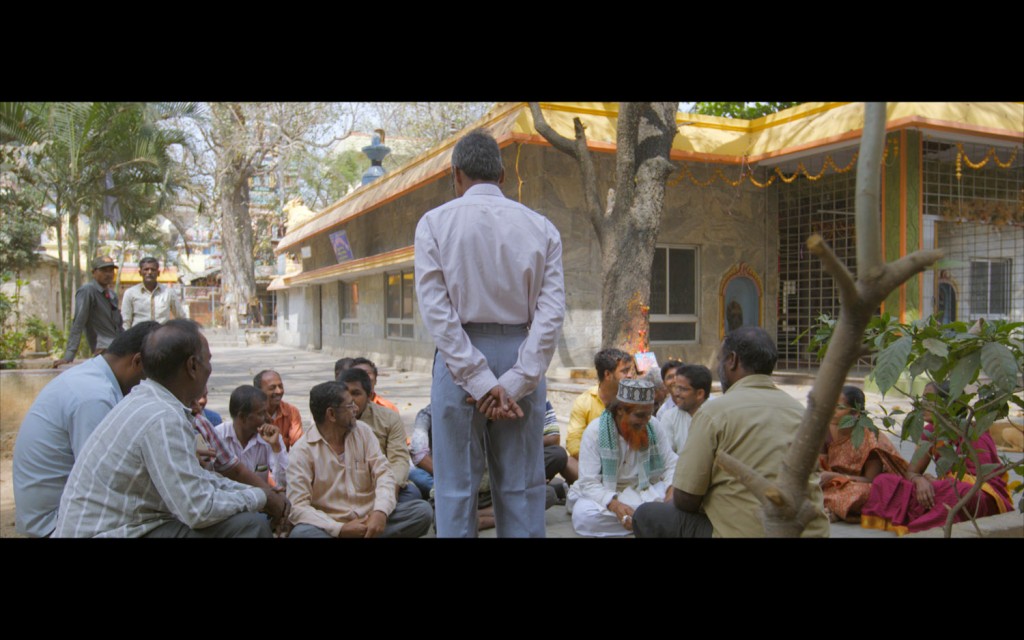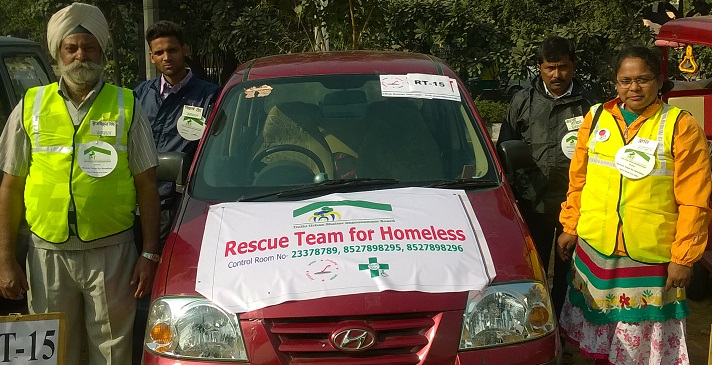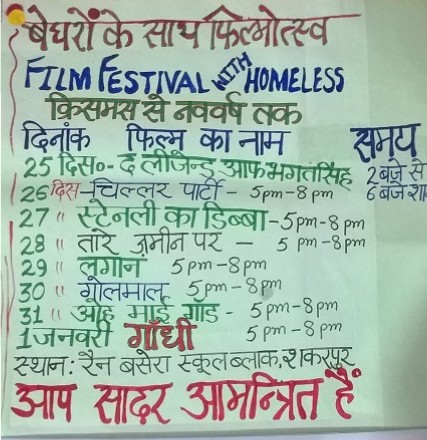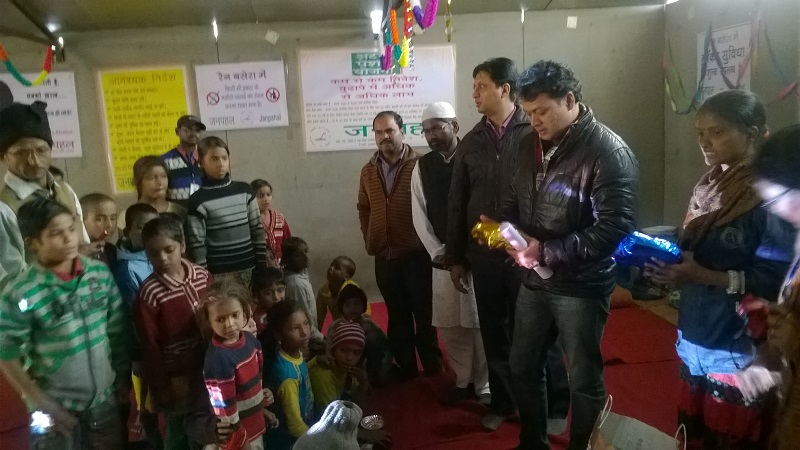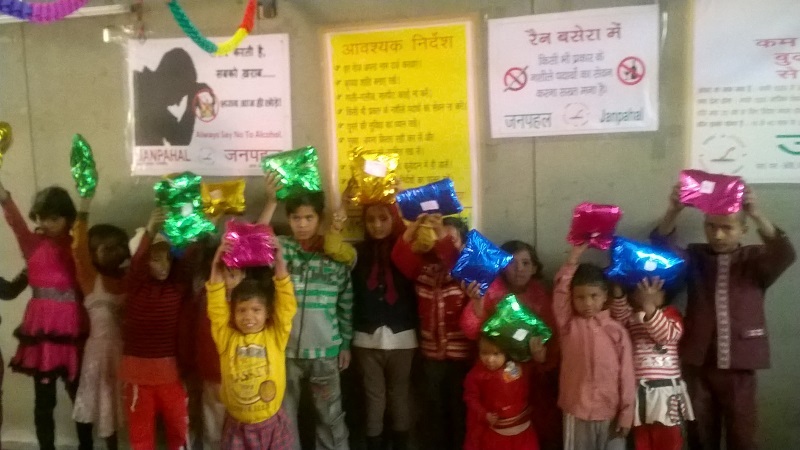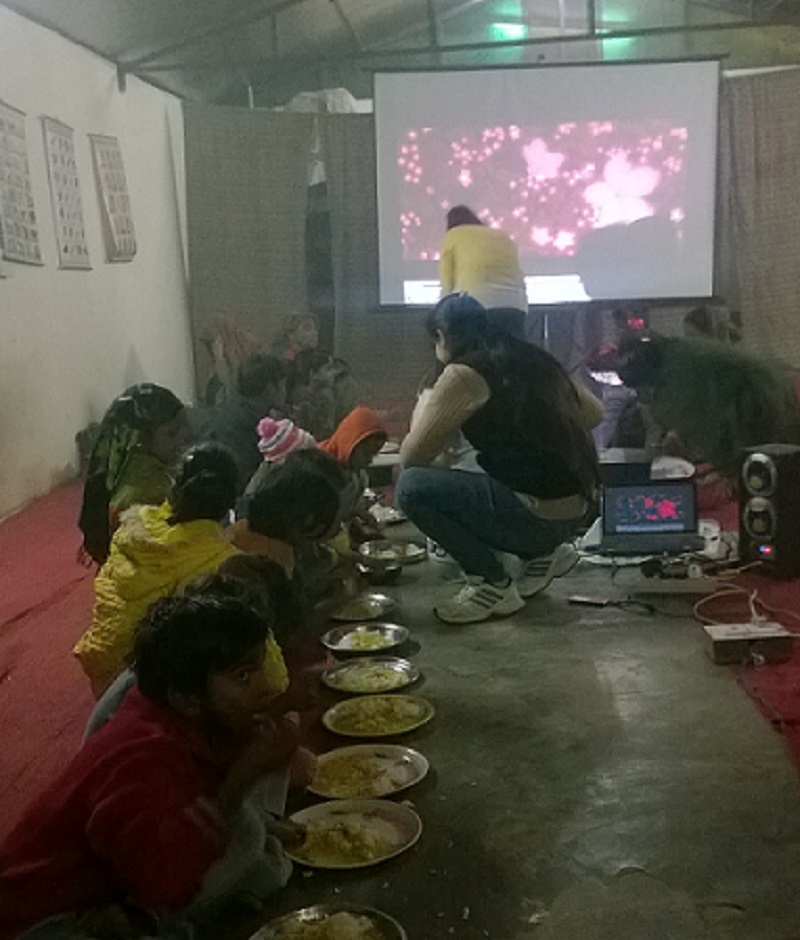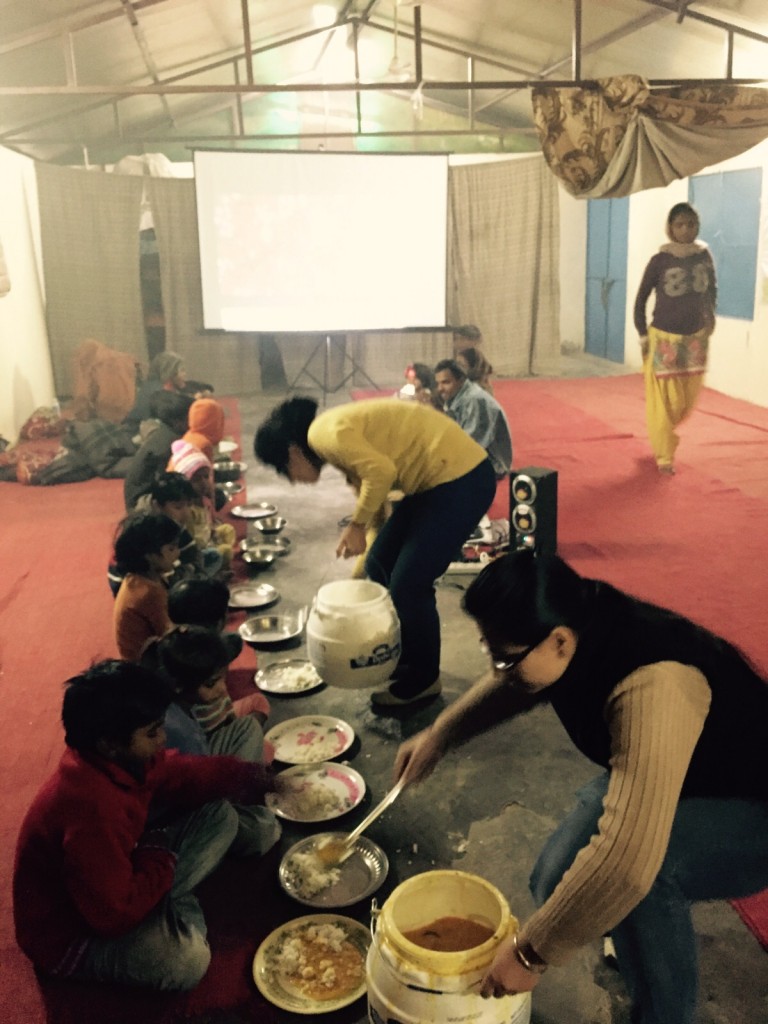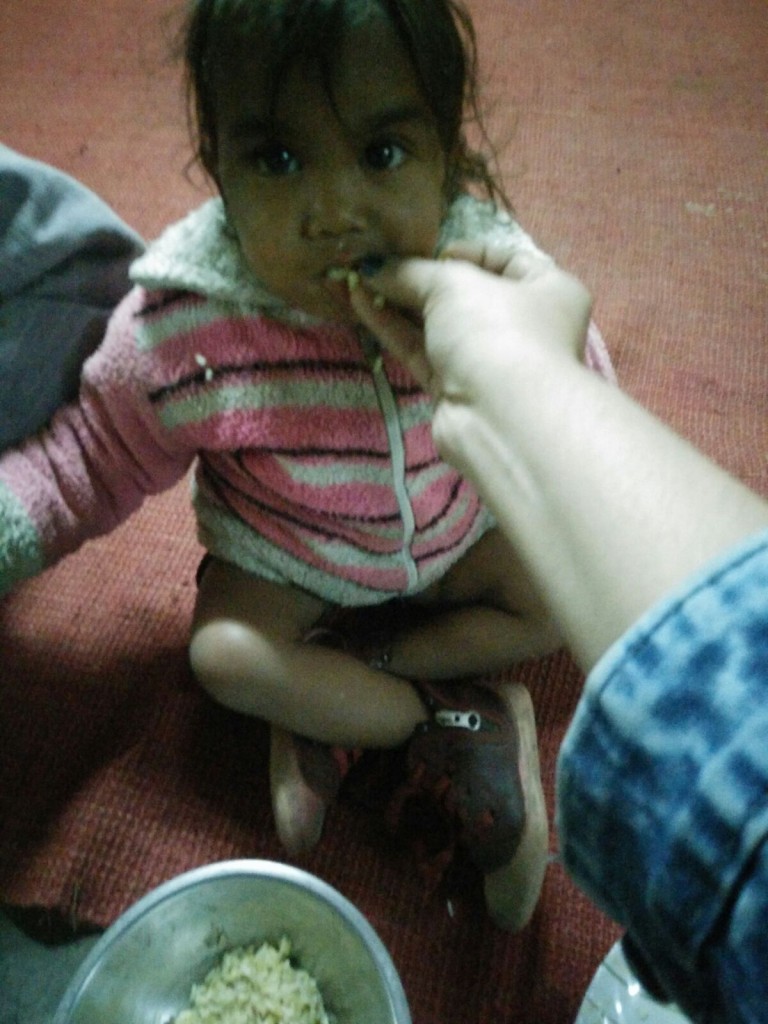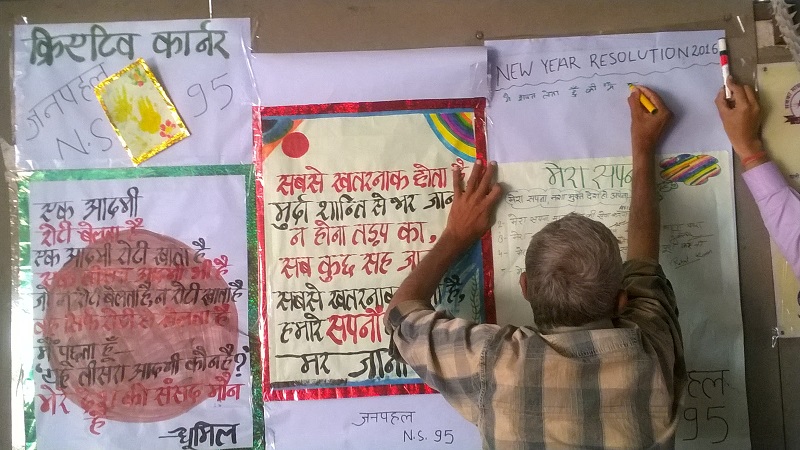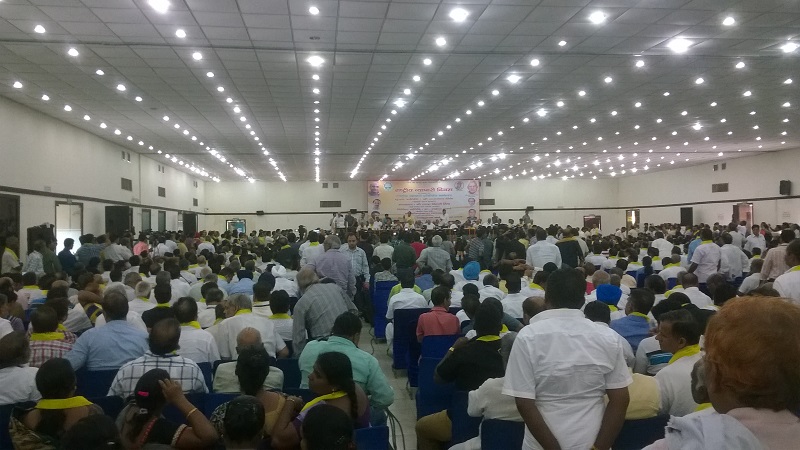Govt of India now claims to be the most open economy in the world for Foreign Direct Investment (FDI) by deciding to permit 100% FDI for trading, including through e-commerce, in respect of food products manufactured or produced in India and relaxing local sourcing norms up to three years and a relaxed sourcing regime for another five years for entities undertaking Single Brand Retail Trading of products having ‘state-of-art’ and ‘cutting edge’ technology. 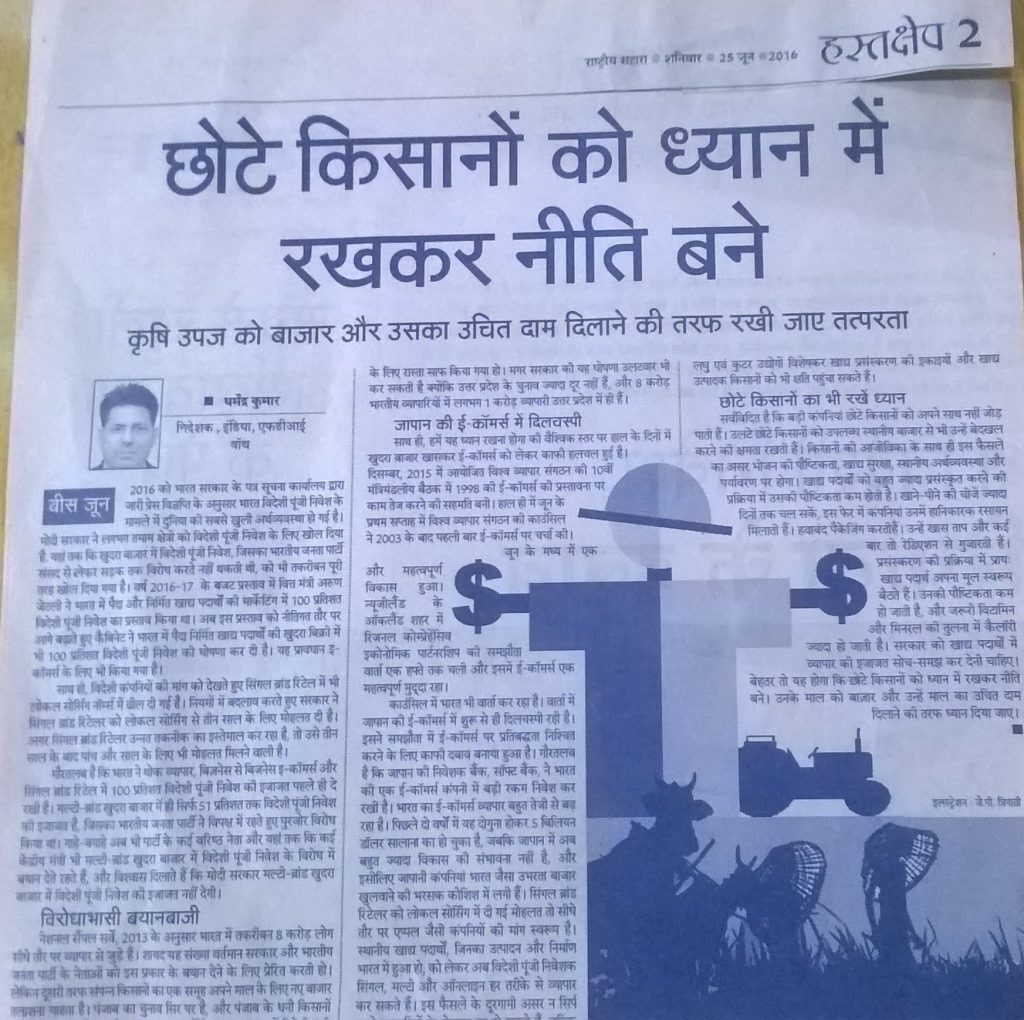
Author: AiY32
FDI Watch in the News
Farmers, Traders, Hawkers and other affected groups oppose the budget proposal to allow 100% FDI in marketing food produced and manufactured locally
Press Statement
Farmers, Traders, Hawkers and other affected groups oppose the budget proposal to allow 100% FDI in marketing food produced and manufactured locally
Delhi, 1st March 2016—The India FDI Watch Campaign, along with the Bhartiya Udyog Vyapar Mandal (Federation of All India Traders and Industries), Federation of Associations of Maharastra, The Hawkers Federation, Janpahal and various other groups, opposed the union budget 2016-17 proposal to allow 100% Foreign Direct Investment (FDI) in marketing food produced and manufactured in India.
The groups called on the Govt. of India to adhere to its party manifesto which categorically opposed FDI in multibrand retail.
Sri Shyam Bihari Mishra, President of the Bhartiya Udyog Vyapar Mandal (BUVM), said “If the government is serious about stopping wastage of food and empowering farmers it should work on a sustainable model of distribution of food considering factors of demand and supply. It does not make logical sense to allow supermarkets which are known for wastage of food throughout their supply chain operation and squeezing farmers.”
Mohan Gurnani, President of the Federation of Association’s of Maharastra (FAM) opposed the move saying, “We know for a fact that small farmers, traders and hawkers are impacted when large corporations enter into the retail sector, the Government should be restricting their entry, but instead are allowing them in through various routes, and in the mean time appeasing the public by saying they are not in favour of FDI in multibrand retail.”
Vijay Prakash Jain, Secretary General of BUVM stated that, “the entire supply line of food, which is such an important part of this nation’s retail culture and history, stands to be threatened.”
Dharmendra Kumar, India FDI Watch, Campaign Director added, “the budgetary announcement raises concerns over livelihood, nutrition, food safety, local economies and the environment. Food loses most of their nutritional properties during heavy processing. To prolong shelf life, foods may have preservatives added to them, or they may be sealed in sterile packaging and may also be exposed to controlled amounts of heat, or in some cases radiation. Processing often radically changes the nature of the original food. Processed food ingredients tend to be nutrient-poor, meaning they are high in calories relative to the amount of vitamins, minerals and other key dietary nutrients. Many processed foods are high in added sugar, sodium, saturated fats or trans fats and contain little dietary fiber and can contribute to foodborne illness outbreaks. Case studies of other countries underline the need for development programs and public support to assist small farmers and traders’. Govt of India should not deregulate the farm and retail sectors in a rushed manner until sufficient measures are put in place that will protect livelihoods of farmers and small traders.”
Ms. Priti Maurya of Janpahal works with small farmers says,”processing plants have become larger and handle larger volumes of products, sometimes from many different sources and distribute them over a broader geographic area.Small farmers never become part of such so-called modern supply chain as processors and supermarkets look for large volumes. Small farmers would lose the local market. Food processors and supermarkets, can have considerable influence over who produces food, how it is produced and what is eaten.
Hakim Singh Rawat, General Secretary, The Hawkers Federation stated “Supermarkets too have high percentage of wastage. Wastage of non-perishable foods like grains and cereals has very low level of wastage but the Govt has allowed processors and supermarkets in all food categories in the name of reducing wastage. The policy would threaten livelihood of all street vendors depending on retailing food.”
Film Crew has wrapped up in Bengaluru. Stay tuned for the complete film coming out soon.
ACORN India on the Move
ACORN in Delhi Offers Alternatives to the “Sleep Mafia”
Check out the Chief Organizer Blog that features the work of ACORN in India for the homeless.
In addition to running our own shelters again, ACORN India also runs a rescue vehicle in Delhi. It moves in the streets from 10 pm to 4 am and rescues homeless sleeping in open by bringing them to the nearest shelter.
Link to Article Featured in New York Times on Homeless in India
Desperate for Slumber in Delhi, Homeless Encounter a ‘Sleep Mafia’
By ELLEN BARRYJAN. 18, 2016
DELHI, India — When midnight approaches in Old Delhi and a thick, freezing fog settles over the city, the quilt-wallah Farukh Khan sits on his corner, watching the market for his services come to life.
They shuffle up one by one, men desperate for sleep. The bicycle rickshaw pullers, peeling one of his 20-rupee, or 30-cent, quilts off a pile, fold their bodies into strange angles on the four-foot seats of their vehicles. The day laborers curl their bodies on the frigid sidewalk, sometimes spooned against other men for warmth.
Those who cannot afford to pay Mr. Khan build fires, out of plastic if necessary, and crouch over them, waiting for the night to be over.
Does any city have a more stratified sleep economy than wintertime Delhi? The filmmaker Shaunak Sen, who spent two years researching the city’s sleep vendors for a documentary, “Cities of Sleep,” discovered a sprawling gray market that has taken shape around the city’s vast unmet need for shelter. In some places, it breeds what he calls a “sleep mafia, who controls who sleeps where, for how long, and what quality of sleep.”
The story of privatized sleep follows a familiar pattern in this city: After decades of uncontrolled growth, the city government’s inability to provide services like health care, water, transportation and security has given rise to thriving private industries, efficient enough to fulfill the needs of those who can pay.
But shelter, given Delhi’s extremes of heat and cold, is often a matter of survival. The police report collecting more than 3,000 unidentifiable bodies from the streets every year, typically men whose health broke down after years living outdoors. Winter presents especially brutal choices to homeless laborers, who have no place to protect blankets from thieves in the daytime hours. Some try to hide them in the tops of trees.
The moral quandary of making this into a business is at the center of Mr. Sen’s film, which had its premiere at a Mumbai film festival in November. One of his subjects, Ranjit, takes a protective attitude toward his regular “sleepers,” as he calls them, allowing them to drift off to sleep watching Bollywood films for 10 rupees a night. Another, a hard-nosed businessman called Jamaal, increases his price to 50 rupees, from 30, when the temperature drops.
In one scene, when a man pleads, “Sir, I am a poor man; I’ll die,” Jamaal chuckles and replies: “You’re not allowed to die. Even that will cost 1,250 rupees.”
“Look, sleep is the most demanding master there is; no one can stop it when it has chosen to arrive,” Jamaal says in the film. “We were the first to recognize the sheer economic might of sleep.”
Like many of this city’s businesses, sleep vendors are both highly organized and officially nonexistent. In Mr. Khan’s neighborhood, four quilt vendors have divided the sidewalks and public spaces into quadrants, and when night falls, their customers arrange themselves into colonies of lumpy forms. Some have returned to the same spot every night for years.
A drunken man, his hair matted, stumbled up to Mr. Khan and begged. “Brother, please,” he pleaded, and Mr. Khan uttered a curse under his breath, then grabbed a quilt and thrust it at him.
“If I don’t give him the blanket, he will freeze to death,” he said.
Earlier in the week, this had happened, just a block away from Mr. Khan’s spot. The morning street sweeper had tried to rouse a sleeping man from the sidewalk, but he pulled back the blanket and saw that the man’s feet were stiff.
The man, who was around 35, had been stumbling around drunkenly the night before. No one knew who he was; a police officer asked some other men to go through his pockets, in hopes of finding identification, but they were empty. He covered the body with a sheet, and it lay on the sidewalk until the mortuary workers came, at sunset.
A cluster of “pavement dweller” deaths prompted India’s Supreme Court to rule in 2010 that the country’s large cities must provide shelter for 0.1 percent of the population. This winter, Delhi expanded its shelter system to accommodate more than 18,000, but the number of homeless is vast — likely more than 100,000, said Ashwin Parulkar, who researches homelessness at the Delhi’s Center for Policy Research.
The sleep vendors, Mr. Parulkar said, thrive where the government has failed.
“They are exploiting them,” he said. “There is a slew of public policies for these people that are supposed to bypass this kind of exploitation.”
Mr. Khan, who has been here for eight years, says he extends credit for regular customers to a limit of 100, or occasionally 200, rupees. (Several shivering men, who had spent the night around a smoldering fire nearby, snorted in disbelief upon hearing this.) He considers boundaries between vendors so sacred that he will not step across them. He makes regular payments to the police and street sweepers so they do not disturb his sleepers, and he maintains close relations with the local pickpockets so that he can tell them whom not to rob.
“It’s hard,” he said, “but what would happen if I was not here? More people would die.”
He added, “I have the feeling that I am doing charity.”
Among his clients are the inebriated and the insanely hopeful. Mohammad Sajid, one leg misshapen by polio, was sharing a quilt with a friend, also polio-stricken, whom he had met washing dishes at a food stall. The two men had lost their jobs two weeks earlier, and every day their store of money dwindled: 2 rupees to use public toilets, 5 rupees to bathe, 5 rupees for a half-cup of tea, 10 rupees for half a quilt.
His friend was thinking of returning to his village, at least until the cold passed, but Mr. Sajid shook his head.
“I will go back,” he said. “But first I want to make something of myself.”
Mr. Khan knows better. Come back in five years, he said, and half of these guys will still be here.
“Everybody here is a sad story,” he said. “Why would a happy story come to sleep here?” He poured himself a plastic cup of whiskey. “They will get up in the morning, use the toilet, and they will be ready for work. The system never finishes.”
***
Janpahal, a Delhi based affiliate of ACORN International in association with Govt of Delhi is running and managing five shelters for homeless namely at Shakarpur, Ganesh Nagar, Yamuna Khadar, Akshardham and Geeta Colony. The shelters are free with many facilities including clean mattress, bed sheets, blankets, quilts, drinking water, electricity, toilets, bathroom, first aid box, lockers, daily newspaper, morning tea, breakfast, counseling and sanitary napkins. Free tuition are provided to school going homeless children. Facilities for entertainment and sports are also available. Along with daily morning tea and healthy breakfast, fresh and hot food for dinner are also being served on Sundays. We run various awareness programmes and programs to link homeless with government services and skill development programs. Special awareness drive was conducted on drug-addiction, HIV/AIDS, TB etc. Homeless residents of these shelters collectively celebrate festivals and has created a creative corner in all shelters. Recently, a film festival was organized from Christmas to New Year.
Central Vigilance Commission probes bribery charges involving Wal-Mart
“Some observations have been made that Wal-Mart gave some amount to government officials here. It is our duty to look into it,” Vigilance Commissioner T M Bhasin ..
Wal-Mart paid millions of dollars as bribes in India: Report
WASHINGTON: America’s multinational retail corporation Wal-Mart is suspected to have paid bribes worth millions of dollars in India, according to a media report.
In a major report, The Wall Street Journal said Walmart’s “suspected bribery” unearthed in India involves thousands of small payments to low-level local officials to help move goods through customs or obtain real-estate permits.
“The vast majority of the suspicious payments were less than $200, and some were as low as $5, the people said, but when added together they totaled millions of dollars,” the daily said.
In 2013, Wal-Mart shelved plans to open retail stores in India by severing a joint venture with Bharti Enterprises Ltd and instead decided to become solely a wholesaler there, the report said.
Wal-Mart, who was pushing the previous UPA regime for opening of the multi-brand retail sector was also involved in lobbying before the US Congress in this regard, Congressional disclosure reports have said in the past few years.
According to the report, Wal-Mart’s massive bribery efforts is unlikely to bring in any penalty on it as its Indian operation does not yield any profit under the provisions of the Foreign Corrupt Practices Act (FCPA) of the United States.
“Because penalties under the FCPA are often connected to the amount of profit the alleged misconduct generated, the payments in India wouldn’t be likely to result in any sizable penalty, since Wal-Mart’s operations there haven’t been particularly profitable, said people familiar with the matter,” the daily reported.
There was no immediate response from Walmart’s corporate headquarters here on the Wall Street Journal’s report on its bribery in India.
According to The Wall Street Journal, federal investigators “found evidence of bribery in India, centering on widespread but relatively small payments made to local officials there,” during the course of its “high-profile federal probe” into allegations of widespread corruption at WalmartStores Inc’s operations in Mexico.
The investigations though have found little in the way of major offenses in Mexico, and is likely to result in a much smaller case than investigators first expected, the daily said.
Millions of Indian workers strike against ‘anti-labor policies’
One-day strike against prime minister’s pro-business initiatives reportedly cause billions of dollars in economic losses
Millions of Indian workers launched a 24-hour strike on Wednesday against what they said were Prime Minister Narendra Modi’s “anti-labor policies,” prompting billions of dollars in economic losses.
Ten major unions called the nationwide strike over the government’s pro-business initiatives after recent talks with Finance Minister Arun Jaitley broke down.
The unions — which represent a wide range of industries, from banking to coal mining — are demanding the government dump plans to sell off stakes in state-run companies to boost the public purse and to shutter unproductive factories.
“We are against these anti-labor policies. The government is going to change the laws to benefit the corporates,” said Gurudas Dasgupta, secretary of the Indian Trade Union Congress, which has 3.6 million members.
“The changes they want to bring are against the working classes. I am very confident of a hugely successful strike,” he told Agence France-Presse on Tuesday.
Later on Wednesday, Dasgupta told The Times of India that the response to the strike was “magnificent” and estimated that more than 150 million workers participated, though the figure could not be independently confirmed.
Workers in the banking, manufacturing, construction and coal mining sectors were among those who walked off the job, according to union leaders.
Modi won a landslide election victory last May, promising a string of business-friendly reforms to attract foreign investment and revive Asia’s third largest economy.
But the opposition has blocked flagship tax and land reforms, aggravating investor concerns, while the unions are increasingly angry over the reforms.
“The Modi government has turned a blind eye towards the problems being faced by the labor class,” Dharmendra Kumar, president of The Hawkers’ Federation, said at a news conference.
“The government must rethink its labor policies. Modi has made a mockery of us by telling the world to come and manufacture in India because it has the cheapest labor.”
The Hawkers’ Federation is demanding that a monthly minimum wage hike from $72 to $226 be extended to the informal sector.
India’s economy grew by a slower-than-expected 7 percent in the first quarter of the financial year and experts warn reforms are needed to at least keep that pace to create jobs for millions of young people.
Previous strikes have shut down cities and cost the Indian economy millions of dollars in lost production.
Industry body Assocham estimated $3.7 billion in economic losses from Wednesday’s strike, singling out the country’s ports where exports were stranded on the docks, reported The Times of India.
Al Jazeera and wire services
Open to amendments in future once GST Bill is passed: Rajnath Singh
NEW DELHI: With Congress and Left opposing the GST Bill, Home Minister Rajnath Singh today appealed to all parties to lend support to the proposed legislation for its passage in Parliament, saying the government will be open to amendments in future.
“I appeal to all parties to support us in Parliament so that we can pass it. We are open to amendments of GST Bill in future as per suggestions of traders,” he said addressing a conference of traders here.
Singh said the government was trying its best to pass the GST Bill in Parliament but due to the continuous disruption of the House by the opposition, the effort has not been successful.
The GST Bill was passed by Lok Sabha but the Rajya Sabha is yet to pass it due to opposition of Congress, Left parties and AIADMK. These parties want changes in the Bill.
Terming retail traders as the backbone of country’s economy, Singh said the government would not allow their interests to be affected by globalisation.
The Home Minister said the central government understands the difficulty faced by the retail traders and would do its best to resolve them as no one can undermine their importance.
“We were, are and will always be business friendly. You had demanded that there should be no FDI in multi-brand retail and we ensured that it does not happen,” he said.
